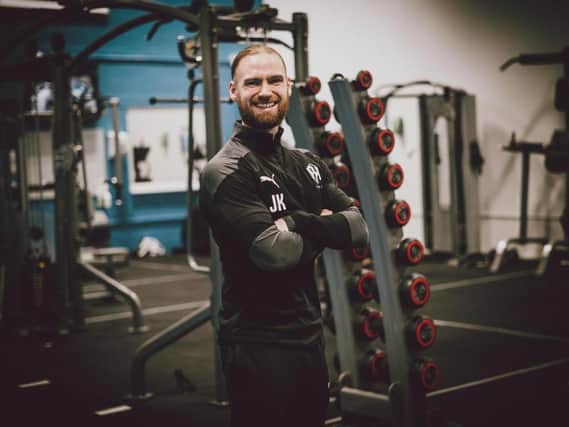Top tips for starting a diet! | Josh Kennedy


It’s been a tough year! That said, we now have the promise of a relatively normal summer, and we’re all looking to make the most of it!
For lots of us, that means getting back on top of our health and fitness, and often, this starts with a good diet.
Advertisement
Hide AdAdvertisement
Hide AdHere’s some top tips to help you to find a diet that not only works, but works FOR YOU.
Know your starting point, and know your goal!
Before you do anything else, starting a diet means knowing where you are today, and where you’re looking to get to.
This could mean investing in a set of scales to track bodyweight, taking progress photos, and more.
If health is a priority (which it should be), I’d also suggest keeping tabs on resting heart rate, and investing in a home blood pressure monitor so you can keep track of these important but often neglected metrics, so you can be sure your health is moving in the right direction.
Advertisement
Hide AdAdvertisement
Hide AdHaving the end goal clear is great (I’ll actually talk about just how important this is to the entire journey over the coming weeks), but it’s really important to know what to expect.
Get some advice, and make sure you have a plan that monitors the key areas for you, alongside knowing what you should expect.
That way, if something isn’t working, you know if you need to make a change, or if you need to stick to the plan.
Tracking food and good habits.
We can talk a lot about calorie tracking. In fact, I do talk a lot about it, but the thing is, understanding food is important for long term success.
Advertisement
Hide AdAdvertisement
Hide AdFor this reason, I think everyone looking to take control of their nutrition should be tracking it.
Apps like my fitness pal make this easy, but if you’re not tech savvy, a written food diary, or even just snapping a photo of all of your meals will give an indication on what you’re current diet looks like, and what may need to change.
Try to understand what’s in your meals; your calories (kcal), protein, carbs, and fats. But remember, this isn’t the be all and end all.
Having rough targets for these amounts is a good starting point (eg. 2000kcal, 130g protein per day), but remember, quality of nutrition is also important.
Advertisement
Hide AdAdvertisement
Hide AdWe have five habits to focus on in addition to tracking nutrition: Eat plenty of protein, eat plenty of veg, drink plenty of water.
These three not only help your body to get the nutrition it needs, but also make sticking to the plan easier and helping you to feel more energised, and less hungry!
The other two habits? Eat less junk food, and drink less Alcohol because, well, it’s a diet...
Where to start with Exercise
There’s lots of forms of exercise we can do, even without access to a gym.
Advertisement
Hide AdAdvertisement
Hide AdThe key thing in the early stages of any plan is to exercise often. Do something you enjoy. This could be working out at home, going for a jog, cycling, walking, lifting weights, or anything else.
Try to be active every day, but be mindful about doing the same workouts over and over, as this can lead to issues, particularly if it’s a big jump up from what you’re used to.
Get a plan that will work around your schedule and commit to it. You’ll feel great, and you’ll boost your results massively compared to just dieting without any exercise.
If you need any help with getting started, feel free to reach out on our website (fitness-experience.co.uk). Keep and eye out for next week, where we will look at goal setting for fat loss!
Comment Guidelines
National World encourages reader discussion on our stories. User feedback, insights and back-and-forth exchanges add a rich layer of context to reporting. Please review our Community Guidelines before commenting.